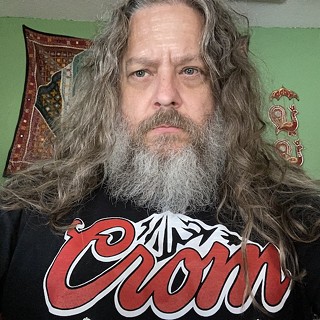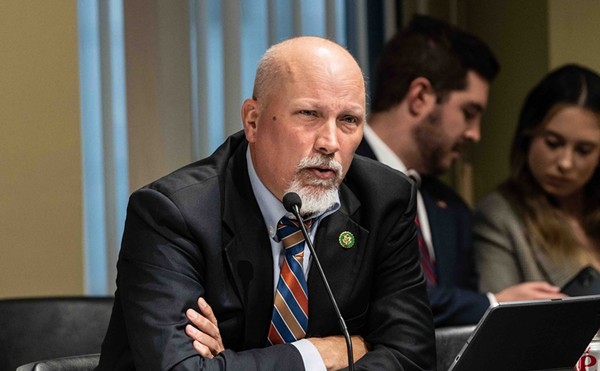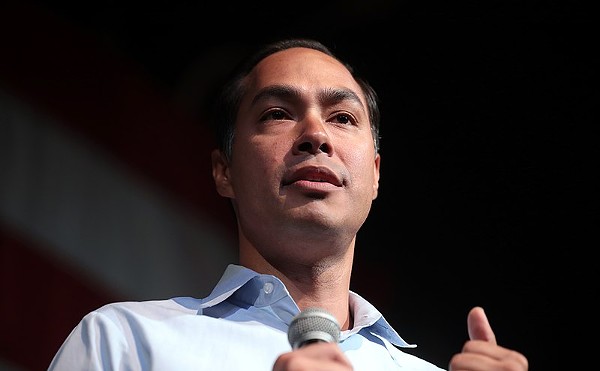
On multiple levels.
San Antonio-based iHeartMedia, the nation’s largest radio-station holding company, picked up the podcast for distribution in late 2022, allowing Texas’ junior Republican senator a national platform to air his grievances against “woke” culture and other favorite targets while millions tune in.
During a session of his podcast, Cruz himself described his pact with the media conglomerate, which has 850 stations nationwide, as a “big damn deal.”
The same also could be said about the fundraising implications for The Verdict, which made recent headlines after federal filings revealed iHeart Media has directed $630,000 since the start of the deal to Truth and Courage, a super PAC that publicly lists its reason for existence as ensuring Cruz is reelected in 2024.
Those payments amount to roughly a third of the PAC’s total cash intake, according to federal records.
Not surprising, the arrangement — which campaign finance experts describe with terms such as “unusual” and “unprecedented” — has spurred a recent complaint to the Federal Election Commission. The filing, made last month by a pair of watchdog groups, alleges the distribution deal allows Cruz to skirt federal laws seeking to rein in corporate funding for candidates.
“This is far and away one of the most unusual super PACs since Citizens United in terms of how it gets its money — which appears to be compensating the super PAC based on someone providing a service,” said Brett Kappel, a Washington, D.C., campaign finance attorney who’s done work on both sides of the aisle. “It’s a very murky area of the law thanks to the U.S. Supreme Court.”
The high court’s Citizens United case came about after that nonprofit political group challenged FEC rules that halted it from promoting a film critical of then-presidential candidate Hillary Clinton. The justices’ resulting 5-4 decision cleared the way for corporations and outside groups to spend unlimited amounts of cash on elections.
In response to the Current’s request for comment, Cruz’s office sent a brief statement blasting the “mainstream media and the cogs in the machine of the Biden-Pelosi Democrat Party” for scrutinizing the distribution deal.
“Senator Cruz appears on Verdict three times a week for free. He does this to pull back the veil on the corrupt inner workings of Washington — none of which ever get fairly covered,” according to the statement.
For its part, iHeartMedia offered no response to the Current’s inquiry. However, in an earlier media comment, a spokeswoman said the payments to Truth and Courage are “associated with” sales of ad time on Cruz’s podcast.
‘Wealthy special interests’
Kappel said those statements ignore the real concern: how iHeartMedia would know to direct ad money into the super PAC backing Cruz’s reelection without the senator offering direction on the deal.
Under law, super PACs such as Truth and Courage can raise unlimited amounts of cash to back federal candidates and accept direct corporate donations. However, federal candidates can’t “solicit, receive, direct, transfer, or spend funds” on behalf of super PACs.
In their April FEC complaint, the watchdog groups Campaign Legal Center and End Citizens United argue the nature of the podcast syndication deal strongly suggests Cruz told iHeartMedia to pay corporate dollars into Truth and Courage in exchange for his services.
“This type of funding risks putting the priorities of wealthy special interests above everyone else and makes our political process more vulnerable to corruption,” Erin Chlopak, Campaign Legal Center’s senior director of campaign finance, said in a statement about its investigation request.
“Yet all available information makes it seem that a partnership between Texas Sen. Ted Cruz and iHeartMedia has produced such an illegal transfer, with over $630,000 in ‘income’ from Cruz’s podcast moving to a super PAC supporting his reelection,” Chlopak continued. “To give Texas voters clarity, the Federal Election Commission must swiftly investigate this matter and determine whether Sen. Cruz played a role in directing this transfer.”
Beyond urging the FEC to open an investigation, the groups urged the commission to levy sanctions, including civil penalties. The complaint argues that the resulting fines must be large enough to deter others from attempting similar end runs around federal campaign finance laws.
“By soliciting or directing $630,850.09 of iHeartMedia’s corporate funds to or on behalf of [Truth
and Courage] in connection with his 2024 election, Cruz appears to have brazenly violated these federal campaign finance laws, which are crucial to preventing real and apparent corruption in our federal elections, as well as promoting voters’ right to having a meaningful electoral voice through the democratic process,” the filing states.
Oversight? What oversight?
Despite the complaint’s serious allegations and the eyebrow-raising nature of Cruz’s syndication deal, experts caution that the FEC is unlikely to issue penalties, much less even green light an investigation. Comprised of three Democrats and three Republicans, the panel has remained deadlocked for roughly the past decade on all but the most egregious cases.
Congress established the FEC decades ago with an equal mix of Republicans and Democrats to ensure bipartisanship and prevent either side from using the commission as a political weapon.
“That’s how it worked for 40 years, but as we’ve seen in every other aspect of Washington, bipartisanship is now the exception and not the rule,” attorney Kappel said.
What’s more, the FEC’s three Republican members — all appointed by former President Donald Trump — are ardent supporters of the Supreme Court’s sky’s-the-limit ruling on campaign contributions and have shown little appetite for enforcement action, according to observers.
Indeed, there are early signs two of those GOP members may not be the most objective arbiters for the case.
Sean J. Cooksey, a Trump appointee who chairs the commission, served as Cruz’s deputy chief counsel in 2018, according to his LinkedIn profile. From 2019 until joining the FEC in 2020, Cooksey served as general counsel for U.S. Sen. Josh Hawley, R-Missouri. Cooksey has offered no indication that he plans to step back from considering the complaint against Cruz. He didn’t respond to the Current’s emailed inquiry about whether he’s considering a recusal.
End Citizens United officials said Cooksey’s prior work for Cruz should disqualify him from hearing a matter involving his former boss. However, the Campaign Legal Center declined comment on the matter.
“Chairman Cooksey, who used to work for Sen. Cruz, clearly has a conflict of interest and should recuse himself from this matter,” Jonas Edwards-Jenks, End Citizens United’s communications director, said in an emailed statement. “For too long, Sen. Cruz has made a mockery of campaign finance laws, and it’s past time he’s held accountable.”
Beyond Cooksey’s past ties to Cruz, another Republican FEC member, attorney Trey Trainor, this month retweeted a photo his wife Lucy Trainor shared of a yard sign outside their Austin-area home promoting the senator’s 2024 reelection campaign.
“Got my new @tedcruz yard sign installed today,” Lucy Trainor tweeted April 19, 10 days after a pair of campaign-finance watchdogs filed their FEC complaint against Cruz. Trey Trainor retweeted the image the same day his wife posted it.
Spokespeople for the FEC declined direct comment on both Cooksey’s past work for Cruz and Trainor’s retweet of the yard sign. Even so, other groups that monitor campaign contributions said they should raise concern.Got my new @tedcruz yard sign installed today. #SD25 #SREC #txlege #Election2024 pic.twitter.com/N4wYEgH9HT
— Lucy Trainor (@lltrainor) April 19, 2024
“Even if not outright illegal, it looks and smells bad if FEC commissioners promote campaign signs for candidates while considering enforcement matters involving those same candidates,” said Aaron Scherb, senior director of legislative affairs for watchdog group Common Cause. “The FEC must consider strengthening its internal recusal procedures to prevent potential conflicts of interest.”
Ballot box recourse
If the FEC is unable to provide serious scrutiny to Cruz, that leaves voters to determine whether they think the line should be drawn on corporate money in politics, campaign finance experts said
The senator is locked in a competitive race against U.S. Rep. Colin Allred, a North Texas Democrat with a solid fundraising record. Allred has so far raked in $21 million to take on Cruz.
Further bolstering Allred’s chances, Democrats face a challenging Senate map during the 2024 election cycle, and they have so far shown a willingness to pour resources into flipping Cruz’s seat. After all, in 2018 former El Paso Congressman Beto O’Rourke came within two points of ousting the firebrand incumbent.
With interest building in Cruz’s relationship with iHeartMedia, the senator last month asked for a delay in making a significant federal financial filing that could shine light on the transaction.
Cruz filed for a three-month extension to submit his U.S. Senate Financial Disclosures for the 2023 calendar year, which would have been due May 15. The extension gives him until Aug. 13 to file the paperwork, which serves as his official record of financial transactions from Jan. 1 through Dec. 30 of last year.
Kappel said it’s not uncommon for senators to seek extensions on the disclosure filings, but Cruz’s decision to seek the maximum delay amid a growing firestorm around his campaign finances should raise eyebrows.
Indeed, some lawmakers consider August the safest time to file because the Senate is out of session and reporters covering Washington politics are often on vacation, the attorney added.
Cruz’s delay suggests that he knows just how damaging more revelations about the podcast deal could be during the current election cycle. The question now is whether voters care enough to head to the polls and show they want limits around corporate money in politics.
Subscribe to SA Current newsletters.Follow us: Apple News | Google News | NewsBreak | Reddit | Instagram | Facebook | Twitter| Or sign up for our RSS Feed

















